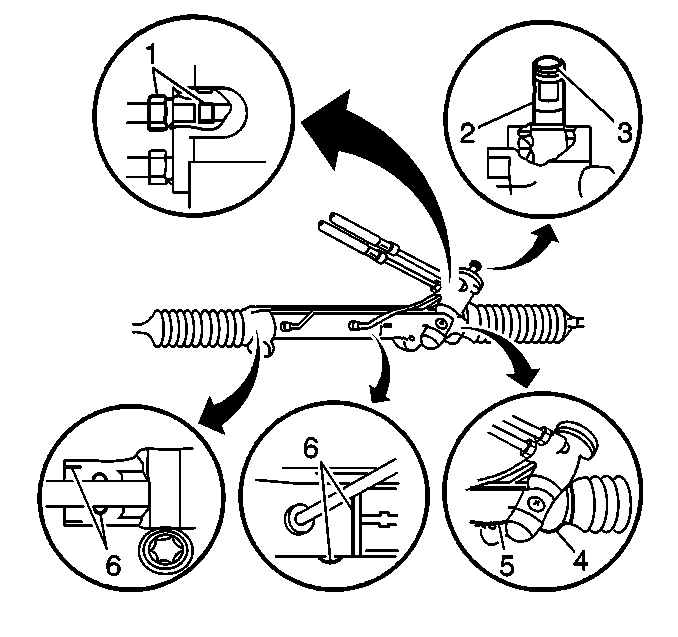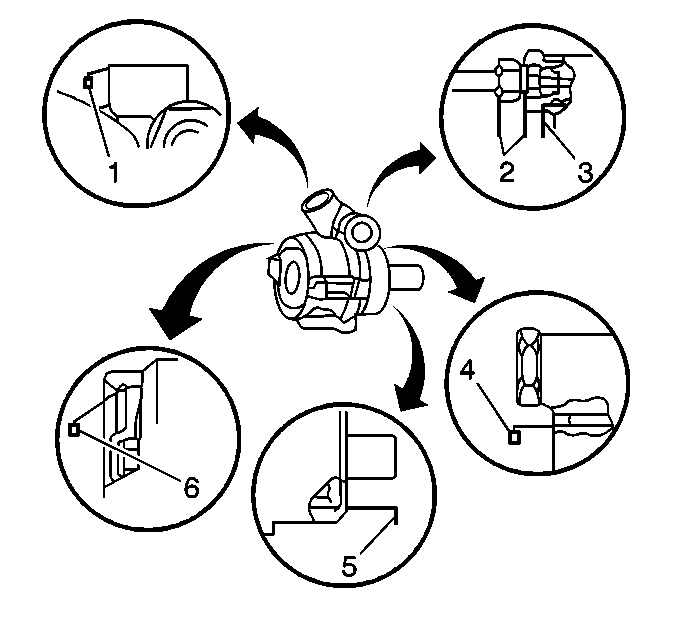For 1990-2009 cars only
The purpose of these procedures is to pinpoint the location of the leak. In some cases, the leak can be located easily. Seepage-type leaks may be more difficult to locate. Use the following method to locate seepage leaks:
- With the engine OFF, wipe the power steering system dry.
- Check the power steering fluid level. Add power steering fluid if necesary. Refer to Checking and Adding Power Steering Fluid .
- Start the engine.
- Have someone else turn the steering wheel from stop to stop several times. Do not hold the steering wheel in a stop position for any length of time or damage to the power steering pump could result.
- Locate the power steering fluid seepage leak.
- Repair the power steering fluid leak.
Notice: Do not hold the steering wheel against the stops while flushing the power steering system. Holding the steering wheel against the wheel stops will cause high system pressure, overheating, and damage to the power steering pump and/or gear.
Power Steering Gear Leak Diagnosis
- Tighten the fittings (1) to 27 N·m (20 lb ft). Replace the O-ring seals (1) if leakage persists.
- Replace the dust and stub seals (2).
- Replace partial gear assembly if leakage exists between the torsion bar and the stub shaft (3).
- Replace partial gear assembly if leakage exists at the driver side (4) and is not affected by the direction of turn.
- Replace partial gear assembly if leakage exists at the housing end (5) and spurts when bottomed in left turn.
- Replace partial gear assembly if leakage exists at these points (6).

Power Steering Pump Leak Diagnosis
- Replace the drive shaft seal (5). Ensure that the driveshaft is clean and free of pitting or grooves in the seal contact area.
- Seat the ball in the housing with blunt punch (4).
- Tighten the fitting (3) to 75N·m (55 lb ft). Replace O-ring seal (3) if leakage persists.
- Tighten the hose fitting (2) nut to 27N·m (20 lb ft). If leakage persists replace O-ring seal (2).
- Replace the O-ring seal if leakage persists (1).
- Replace the O-ring seal (6).

